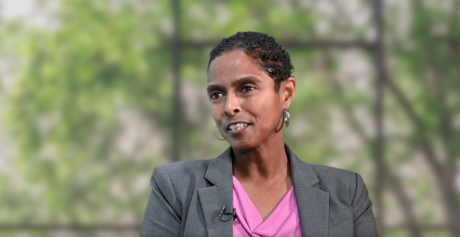

Dr. Ann Barnes
President and CEO, Episcopal Health Foundation
Texas has made recent strides in expanding health insurance coverage for populations facing the most barriers to good health, including a new law providing 12 months of Medicaid health insurance for new mothers after childbirth. However, proposed steep federal funding cuts to Medicaid being considered by Congress could undermine these gains, threatening access to health care for millions of Texans – particularly children, low-income families, and seniors.
Medicaid and CHIP: A lifeline for millions
More than 4 million Texans are currently enrolled in Medicaid and the Children’s Health Insurance Program (CHIP). The latest comprehensive numbers from the state show that the majority of those covered – more than 70% – are low-income children. Before the Medicaid unwinding process after COVID, even more Texans depended on these programs. These efforts have played a critical role in reducing the state’s high uninsured rate and ensuring access to essential medical and other health services.
The devastating potential impact of Medicaid cuts
Imagine waking up one day without health insurance. What tough choices would you face? After the Medicaid unwinding post-COVID, we heard from Texas teachers scrambling to find new coverage so their kids could get back-to-school check-ups. College students suddenly found themselves uninsured, forced to apply for emergency funds just to cover medical bills.
For many Texas families, losing Medicaid isn’t just a policy change—it’s a life-changing crisis that forces them to choose between health and financial stability. And the consequences could be severe:
- Pregnant mothers and newborns: Medicaid currently covers more than half of all births in Texas. Reduced funding could jeopardize prenatal and postnatal care, increasing health risks for both mothers and infants.
- Children and low-income families: Millions of Texas children rely on Medicaid for routine, preventive, and emergency care. Without health insurance coverage, families may delay or forgo essential tests and treatments.
- Seniors and individuals with disabilities: Medicaid covers 56% of all nursing home residents in Texas and provides essential health services for those with disabilities. Cuts could leave these populations without adequate medical and long-term care.
- Rural communities: Medicaid is a critical safety net in rural areas, where more than one-third of children and 22% of seniors depend on the program. Reducing Medicaid funding could directly impact rural hospitals and community clinics, potentially further limiting access to care.
A growing concern: health care affordability and access
Recent findings from Episcopal Health Foundation’s statewide poll highlight the financial strain many Texans already face when seeking medical care:
- 63% of Texans say they have skipped health care due to cost
- 46% report difficulty affording health care
- 41% have struggled to pay medical bills
These numbers could only worsen if proposed cuts to Medicaid take effect, leaving even more Texans without the health insurance coverage they rely on.
In addition, the majority of Texans say that ensuring access to care matters to them:
- 70% believe Texas should enhance health care access for low-income residents
- 69% have a favorable view of Medicaid in Texas
The bottom line: Health care is at risk for Texans who already face the most barriers to good health
Large-scale Medicaid cuts could reverse progress in expanding health insurance coverage and disrupt health care systems statewide. Safety-net clinics and hospitals, especially in rural areas, heavily rely on Medicaid reimbursements to keep their doors open. Without sufficient funding, these institutions may struggle to serve their communities, putting even more families at risk.
Texas has an opportunity to continue improving access to health care, but proposed cuts threaten to push the state backward. As the debate continues in Congress, policymakers must consider the real-life consequences of these decisions—millions of Texans could lose their health insurance, forcing them to make impossible choices about their health and well-being.